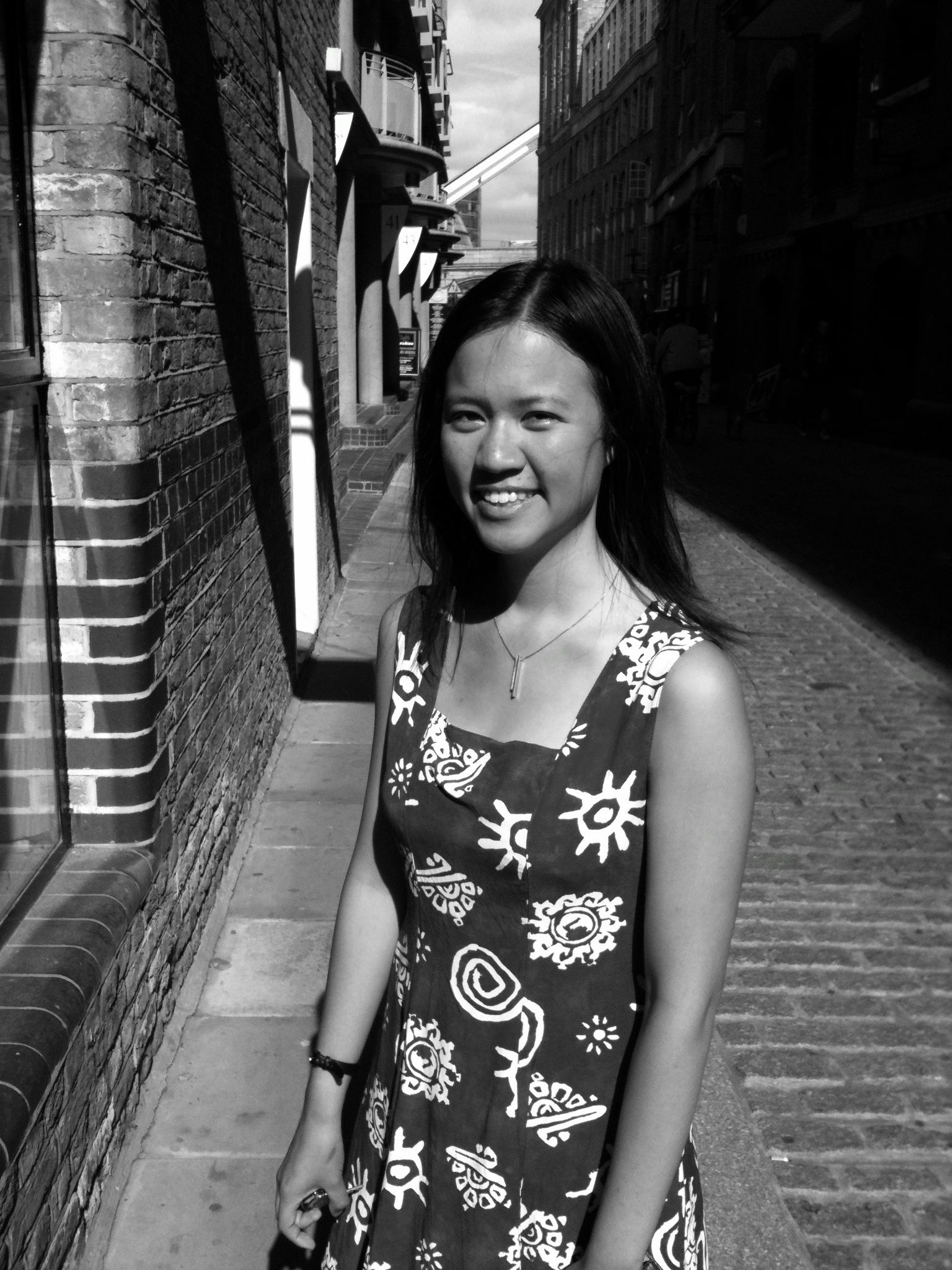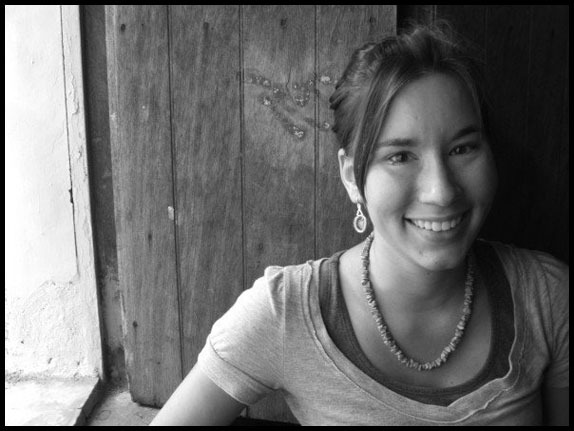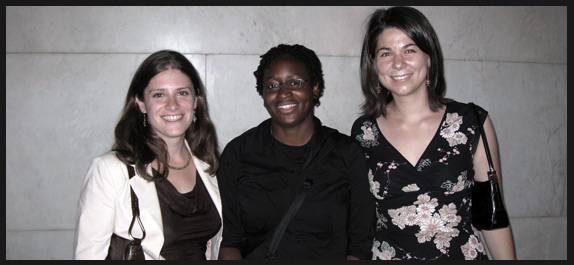 |
 |
 |
 |
 |
 |
|
________________________________________________________ |
||
________________________________________________________
|
||
________________________________________________________
|
||
________________________________________________________  Chenxin Jiang was born in Singapore
and grew up in Hong Kong. She is a recent graduate of Princeton University,
where she studied comparative literature with a focus on German and
Italian. Chenxin spent two years in Duino, Italy, at the United World
College of the Adriatic. She began to work on translating in a creative
writing seminar taught by C. K. Williams; Prof. Williams eventually
supported her proposal to translate Goliarda Sapienza for this prize.
The Susan Sontag Prize for Translation 2010 Winner Benjamin Mier-Cruz For his translation proposal: Modernist Missives of Elmer Diktonius Letters and Poetry of Elmer Diktonius |
||
________________________________________________________  Benjamin Mier-Cruz is currently
pursuing his Ph.D. in Scandinavian Languages and Literatures at UC
Berkeley. He received his B.A. in German Language and Literature from
Arizona State University and completed his M.A. at UC Berkeley. Benjamin
studies 19th- and 20th-century Swedish literature with a particular
interest in Finland-Swedish modernism and German expressionist poetry.
Benjamin is fluent in German and Swedish and has studied in Berlin
and Uppsala. He became interested in Elmer Diktonius after lengthy
study of Diktonius’ literary colleague Edith Södergran.
________________________________________________________
|
||
 |
||
|
________________________________________________________  Roanne Sharp earned a BA in Comparative
Literature from UCLA in 2008 with a focus in English and Spanish post-colonial
literature. She first became interested in translating in 2006 while
copy-editing a story in UCLA’s student newspaper about Professor
Michael Heim, a translator of Milan Kundera and Günter Grass. Professor
Heim eventually sponsored her to compete for this award. Roanne has
been studying Spanish since age 12 and has worked extensively in rural
communities in Latin America with the assistance of the Houston-based
non-profit organization Amigos de las Américas. She is the recipient
of UCLA’s prestigious Peter Rotter Prize for an essay exploring
multiple translations of Pablo Neruda’s Walking Around. In
addition, she spent a semester at the University of Delhi where she
studied English translations of Hindu devotional poetry. This fall,
she will enter the PhD program in Comparative Literature at The University
of Texas at Austin. |
||
________________________________________________________
2009 Honorable Mentions Rosemary Peele For her proposed translation of Viaje olvidado and Autobiografía de Irene by Silvina Ocampo Emily Toder For her proposed translation of Tres poemas y una merced (o cuatro poemas desplazados) by Sergio Chejfec ________________________________________________________ |
||
 |
||
|
________________________________________________________ The Susan Sontag Prize for Translation 2008 Winners Kristin Dickinson Robin Ellis Priscilla Layne For their collaborative translation of Koppstoff: Kanaka Sprak vom Rande der Gesellschaft by Feridun Zaimoğlu ________________________________________________________ |
||
 Kristin Dickinson is currently in her first year of the UC Berkeley Ph.D. program in Comparative Literature. She has studied in Germany and Turkey, and has taught English literature and creative writing as a Robert Bosch Fellow at the University of Potsdam. She holds a B.A. in English and German from the University of Rochester and an M.A. in English from New York University. Robin Ellis was born in Berlin, grew up in San Jose, California, and received her B.A. in German Literature from Oberlin College in 2004. She then received a Fulbright Student Grant to research the works of German-Turkish women writers. Robin is currently a first-year student in the UC Berkeley German Literature and Culture Ph.D. program. Priscilla Layne is currently in her third year of the Ph.D. program in German Literature and Culture at UC Berkeley, where she is researching issues of rebellion in German literature, music and film. After receiving her B.A. in Comparative Literature from the University of Chicago in 2003, Priscilla served as a Fulbright Teaching Assistant in Berlin and she also interned as a translator for the Deutsche Welle in Bonn. Feridun Zaimoğlu’s Koppstoff: Kanaka Sprak vom Rande der Gesellschaft (1998) presents the fictionalized voices of 26 women of Turkish heritage living in Germany. “Koppstoff,” which when translated literally means “head material,” refers not only to the headscarf worn on the heads of many Muslim women, but also to what is going on in their heads – their thoughts, perspectives and inner lives. Zaimoğlu resists any neat categorization of Muslim women by presenting a diverse range of voices: from domestic workers to white-collar professionals, from political activists to prostitutes. Koppstoff challenges readers to rethink conventions of religion, nationalism and femininity, and is globally significant for its contribution to debates on immigration, assimilation and discrimination – issues that resonate far beyond Germany’s borders. Feridun Zaimoğlu was born in Bolu, Turkey in 1964, and came to Germany with his family shortly thereafter. He grew up in Munich and Berlin, and studied art and medicine in Kiel, where he has lived since 1985. Zaimoğlu has worked as a novelist, poet, screenwriter, playwright and journalist. His first novel, Kanak Sprak (1995), was a revealing portrayal of young men of Turkish decent living in Germany, and it introduced readers to a new and subversive language: German/Turkish slang. The book helped to inspire a wave of immigrant literature in Germany. Zaimoğlu went on to found the trans-ethnic activist network “Kanak Attak,” an organization committed to “eradicating racism from German society.” His next novel, Abschaum (1997), was the basis of the film Kanak Attack, released in 2000. Zaimoğlu has received numerous awards and prizes, including the Friedrich-Hebbel Prize (2002), the Adalbert von Chamisso Prize (2005) and the Art Prize of Schleswig-Holstein (2006). His essays have appeared in Die Zeit, Die Welt and Tagesspiegel, and his most recent novel, Liebesbrand, was published in February by Kiepenheuer & Witsch. ________________________________________________________ 2008 Honorable Mention Anne Posten For her proposed translation of Heartcore by Albert Ostermeier ________________________________________________________ Anne Posten is a graduate of Oberlin College with a degree in German Language and Literature. While she has long been interested in translation, her serious experience with it began in the spring of 2007, when she worked on translations of several poems by Thomas Brasch for a bilingual edition of that author’s work published at Oberlin. Since then she has worked with the poet Uwe Kolbe on translations of his work, and on the poetry of Albert Ostermeier, among others. She hopes to continue her work on translation of contemporary German authors of both poetry and prose in order to bring this important work to a wider audience. |
||
 |
||
HOME | PRIZE FOR TRANSLATION | SUSAN SONTAG | ABOUT | EVENTS | DONATE
© 2010 Estate of Susan Sontag. All Rights Reserved.